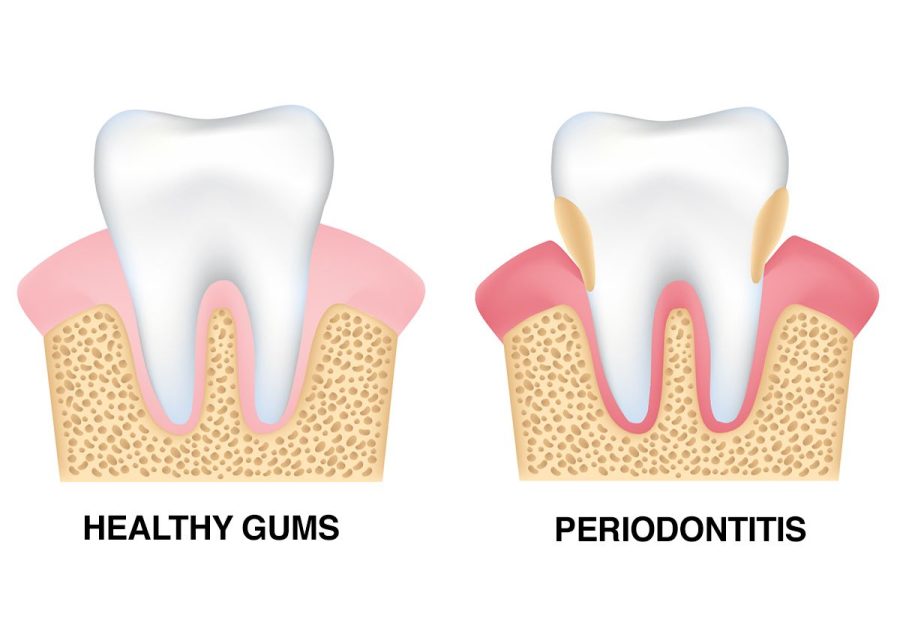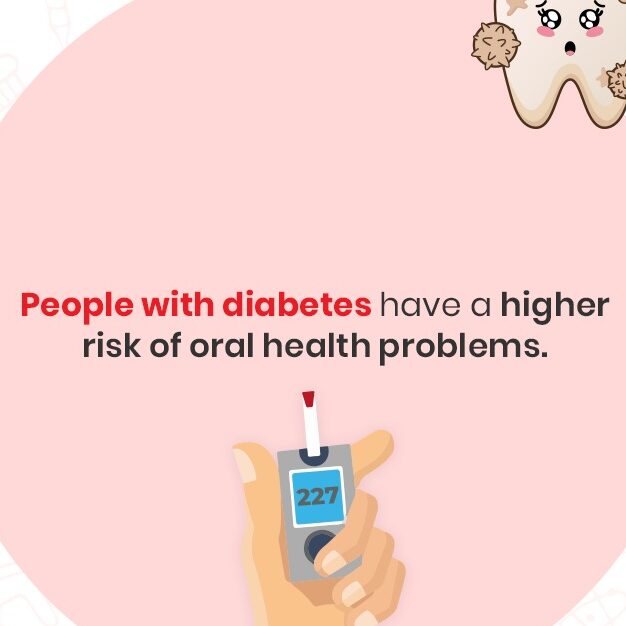Did you know that diabetes can affect how your teeth grow and develop? It’s true. People with diabetes are at a higher risk of developing gum disease, which can make it difficult to keep their teeth healthy. But the good news is that there are things you can do to help prevent further complications from developing. If you have diabetes, keeping your teeth healthy is even more important than for people who don’t have this condition. Left untreated or ignored, periodontal disease in diabetics can lead to tooth loss and even other serious health complications as a result of bacterial infection transferred from the gums into the bloodstream. Read on to find out more about extracting teeth if you have diabetes.
What is Periodontal Disease?
Periodontal disease is an infection of the gums and bones that support your teeth. Although it’s common among people of all ages, it’s something you should be aware of if you have diabetes. As with any disease, the severity of gum disease varies from person to person. Some people have mild cases that go undetected for many years, while others may have serious infections that cause their teeth to fall out with little or no warning.

Gum disease (Periodontal disease) can make it difficult to keep your teeth healthy and may make it necessary to extract them. Diabetes is one of several factors that increase your risk of developing gingival disease. Others include poor oral hygiene, smoking and having a weakened immune system.
Gum Disease in Diabetes
Gum disease is a serious condition that occurs when plaque, a sticky substance made up of bacteria and food particles, stays on your teeth and gums instead of being brushed and flossed away. The more you have diabetes, the more your risk of developing gum disease increases. This is because your blood vessels are less able to fight off infection, making it easier for bacteria to travel to the gums and bones that support your teeth.

As with people without diabetes, the progression of gum disease is slow and gradual. It may be difficult to spot at first, but it can lead to serious health problems if not treated promptly. If left untreated, gum disease can cause your teeth to fall out, put you at risk for infections that travel throughout your body, and may make it necessary to extract teeth.
Teeth Extractions for Diabetes Patients
Most people associate dental extractions with teeth that have been badly damaged by tooth decay, but they are also used to treat gum disease. If your dentist finds that you have serious gum disease, they may recommend that a certain number of teeth be removed to make treatment more manageable. People with diabetes are at a higher risk of needing dental extractions than people without the disease because diabetes can damage nerves and tissues, making them less sensitive and more prone to damage. This means that you may not even know when your gums have become infected and infected teeth have fallen out.
After two weeks of medication, diabetic patients who know their blood glucose level and take sufficient care to keep things under control can safely undergo tooth extraction. Then it may be just like any other person who does not have diabetes.
Tips for Keeping Teeth Healthy instead of Extracting
To prevent gum disease from becoming serious, it’s important to practice good oral hygiene. A daily routine that includes brushing, flossing and using mouthwash can help you keep your teeth and gums healthy. In addition to healthy habits, certain vitamins can help you prevent serious problems associated with gum disease. Vitamin D, vitamin C, folic acid and vitamin B6 are vitamins that can help prevent gum disease. Vitamin A can also help protect your teeth and gums, but it can also increase your risk of gum disease if you have diabetes.
Fasting blood glucose level of 180 mg/dl is a cut-off point for any selective dental extraction. However, Random blood glucose level of 234 mg/dl (13 mmol/l) is a cut-off point for an emergency tooth extraction. Tightly controlled diabetic patients (blood glucose level below 70 mg/dl) are susceptible to hypoglycemia.

At the beginning of each appointment, the dentist should make sure that the diabetic patient has eaten and taken their medications as usual. If not, the patient may be at risk of a hypoglycemic episode. In some cases, the dentist may need to measure and record blood glucose level before initiating treatment.
Conclusion
If you have diabetes, you may be more likely to develop gum disease. When left untreated, gum disease can lead to dental extractions and even other serious complications as a result of bacterial infection. The good news is that there are things you can do to help prevent further complications from developing. To prevent gum disease, it’s important to practice daily oral hygiene. In addition to healthy habits, certain vitamins can help you prevent serious problems associated with gum disease.






